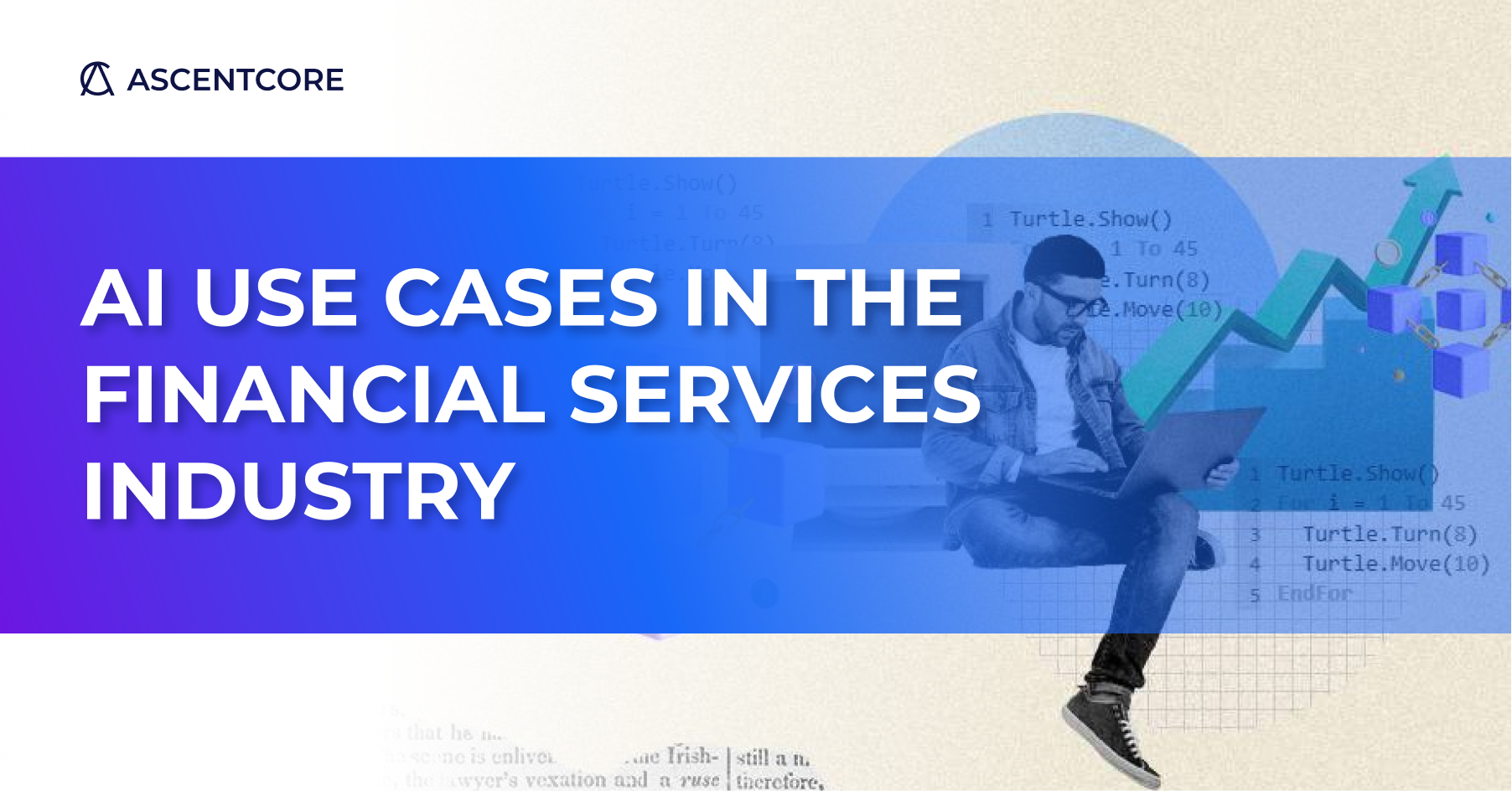The financial services industry has witnessed a profound transformation with the adoption of artificial intelligence (AI) use cases. From interactive chatbots for account inquiries to advanced fraud detection systems, AI has revolutionized operations, enhancing efficiency and delivering cost savings of $447 billion this year, as reported by Business Insider.
Keep reading for the remarkable impact of AI use cases in the financial services industry, as well as a few cautionary concepts for the financial services sector to consider when implementing AI technology.
5 Use Cases in the Financial Services Industry
- Fraud Detection: AI algorithms can analyze large volumes of financial transactions in real-time to detect patterns and anomalies that could indicate potential fraud or a hack. By learning from historical data, AI systems can improve their accuracy over time and help financial institutions identify and prevent fraudulent activities.
- Customer Service Chatbots: AI-powered chatbots have become almost ubiquitous in the industry and are being used by financial institutions to provide personalized customer support and assistance. These chatbots can understand and respond to customer inquiries, provide account information, offer basic financial advice, and even process simple transactions, reducing the need for human intervention and improving response times.
- Algorithmic Trading: AI algorithms are extensively used in trading systems, where they can analyze vast amounts of financial data, including market trends, historical patterns, and real-time information, to make high-speed trading decisions. These algorithms can help financial institutions execute on trades faster than humans and take advantage of market inefficiencies or opportunities.
- Credit Scoring and Underwriting: AI systems can help human employees better assess a customer’s creditworthiness by analyzing a wide range of factors, such as credit history, income, employment records, and more. By using machine learning techniques, these systems can provide more accurate and efficient credit scoring and underwriting processes, enabling lenders to make better-informed decisions and assess risk more effectively.
- Robo-Advisors: Robo-advisors leverage AI and machine learning algorithms to provide automated investment advice and portfolio management services to individual investors. These platforms can analyze an investor’s financial goals, risk tolerance, and market conditions to recommend suitable investment strategies. Robo-advisors often offer lower costs compared to traditional financial advisors and provide continuous monitoring and rebalancing of portfolios.
Ethical Concerns to Consider
The use of AI in the financial services sector does raise a few ethical concerns that are important for institutions to be aware of and to find methods to mitigate them.
A concern that crosses many use cases across a variety of industries is bias. AI systems can inherit biases from the data they are trained on, leading to unfair outcomes. In financial services, this can result in discriminatory practices such as biased lending decisions or differential access to financial products based on demographic factors.
The financial sector experienced the second highest volume of data breaches in 2022 which means that privacy and data protection must be paramount to their operations. AI algorithms require access to large amounts of personal and sensitive data to make accurate predictions which means there can be a risk of misuse or unauthorized access to this data, which can compromise individuals’ privacy and raise concerns about data protection.
AI models, especially complex ones like deep learning neural networks, can be difficult to interpret and understand. This lack of transparency can make it challenging to identify and explain how AI systems arrive at their decisions, which is problematic in financial services where transparency and accountability are crucial. This can also lead to issues around accountability and liability. When AI systems make autonomous decisions, it becomes challenging to determine who is responsible for any negative outcomes or errors, such as financial losses, regulatory violations, or incorrect advice provided by AI-powered financial services.
While there’s no doubt that AI can improve processes and operations for financial institutions, it’s important not to rely too heavily on the technology as it could lead to a diminished role for human judgment and decision-making. Over-reliance on AI algorithms can also reduce human accountability, reduce human oversight, and erode the capacity to challenge or question automated decisions.
These concerns may seem challenging, it is possible to address them through robust regulation, transparent practices, responsible data handling, and ongoing monitoring and auditing of AI systems in financial services. It is important to strike a balance between leveraging the benefits of AI while ensuring fairness, accountability, and protection of individuals’ rights.
The Future Is AI
AI isn’t going anywhere and the financial services industry will undoubtedly continue to leverage AI technology. Whether it’s improving the customer experience with chatbots, enhancing fraud detection, making smarter trading decisions, determining a customer’s creditworthiness, or automated investing advice, AI technology has a multitude of critical roles it can play within financial institutions. And, just as important, being aware of, and mitigating concerns around data protection, bias and fairness, and an overreliance on AI technology must be part of any institution’s plan to leverage AI.
If you’re curious to learn how AI technology could help your business, reach out to AscentCore. With a focus on AI and ML, we deliver transformational results for our clients by leveraging the latest technology and empowering companies to disrupt, transform, accelerate, and scale.



